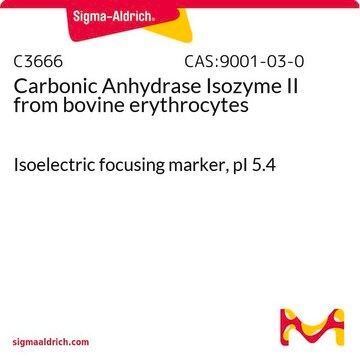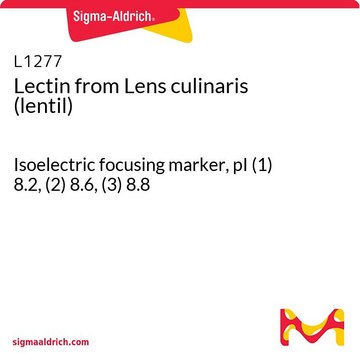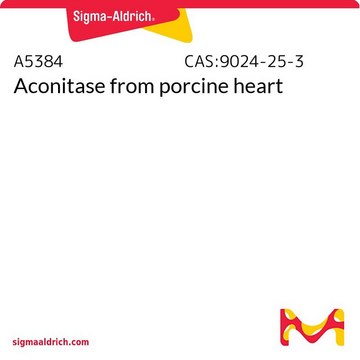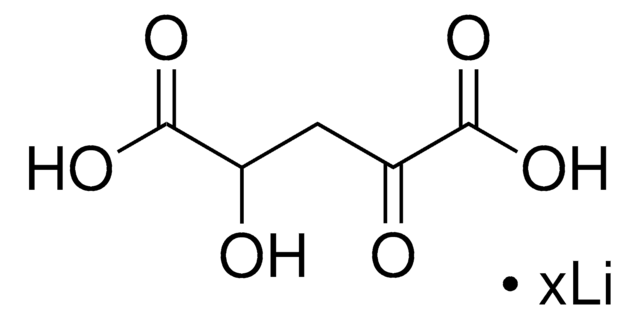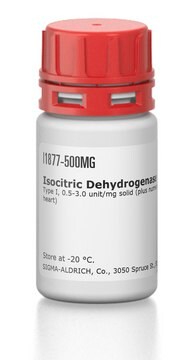C3260
Citrate Synthase from porcine heart
ammonium sulfate suspension, ≥100 units/mg protein
Synonyme(s) :
Citrate condensing enzyme, Citrate oxaloacetate lyase (CoA-acetylating)
About This Item
Produits recommandés
Source biologique
Porcine heart
Forme
ammonium sulfate suspension
Activité spécifique
≥100 units/mg protein
Poids mol.
98 kDa ( 49 kDa monomer)
Solubilité
H2O: soluble 1.0 mg/mL, clear
Activité étrangère
isocitrate dehydrogenase and aconitase ≤0.01%
malic dehydrogenase ≤0.1%
Température de stockage
2-8°C
Application
- to inject newt egg for determining its importance in egg activation at fertilization
- in the preparation of reaction mix to determine pyruvate carboxylase enzyme activity
- to examine whether it can induce a [Ca2+] increase and egg activation in unfertilized eggs
Actions biochimiques/physiologiques
Définition de l'unité
Forme physique
Notes préparatoires
Code de la classe de stockage
12 - Non Combustible Liquids
Classe de danger pour l'eau (WGK)
WGK 1
Point d'éclair (°F)
Not applicable
Point d'éclair (°C)
Not applicable
Certificats d'analyse (COA)
Recherchez un Certificats d'analyse (COA) en saisissant le numéro de lot du produit. Les numéros de lot figurent sur l'étiquette du produit après les mots "Lot" ou "Batch".
Déjà en possession de ce produit ?
Retrouvez la documentation relative aux produits que vous avez récemment achetés dans la Bibliothèque de documents.
Les clients ont également consulté
Articles
Instructions for working with enzymes supplied as ammonium sulfate suspensions
Notre équipe de scientifiques dispose d'une expérience dans tous les secteurs de la recherche, notamment en sciences de la vie, science des matériaux, synthèse chimique, chromatographie, analyse et dans de nombreux autres domaines..
Contacter notre Service technique




